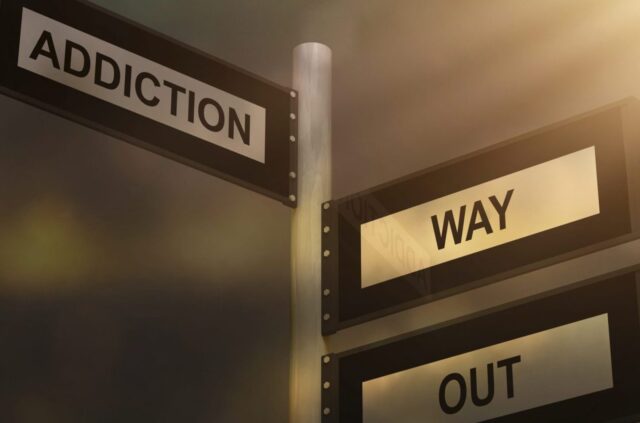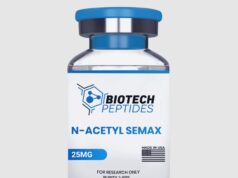
Depending on what kind of person you are and what kind of treatment you are seeking, you may benefit most from outpatient recovery or you may benefit most from inpatient recovery.
Essentially, the difference between these two forms of recovery options is that with outpatient care, the person trying to overcome drug or alcohol addiction does not live in the center and instead goes in for treatment. On the other hand, an inpatient treatment center also serves as the place where the patient will live throughout their recovery.
So, what type of recovery center is best for your needs? Consider some of these primary factors to help make your decision.
The importance of receiving addiction treatment

Before we get into the distinct differences of inpatient versus outpatient recovery, we thought that it would be wise to quickly break down the crucial importance of treatment overall.
For many people struggling with addiction, the hardest part of actually getting into a treatment center is actually getting into the treatment center itself. People who are in the grips of addiction lose themselves in the disease. They often feel as though they cannot see the world, or see themselves in that world, without using the drugs that they are addicted to.
Some are also scared to take part in professional treatment and believe that they can kick the addiction cold turkey all on their own. However, scientific and medical research over the past several decades has made it abundantly clear that treatment is the safest and most effective way for people to seek treatment. So what are the several important reasons why that is the truth?
Let’s break that down.
Treatment helps you break the cycle of addiction

People who are addicted to drugs often need to put themselves in a drug-free environment with people who are willing to hold them accountable when it comes to that ultimate goal of living a drug-free life. Rehab may begin with a detoxification process, but the actual process of treatment and recovery goes far further than simply getting off the substance that you are addicted to. In fact, many drug addicts can effectively detox, but then quickly relapse because they do not have the tools to remain sober.
Treatment from The Forge Recovery is meant specifically to give people those tools to remain healthy and sober long after the active treatment comes to an end.
Treatment helps you identify the underlying issues
For many people, the drugs that they are addicted to are seen as some kind of solution to avoid or forget about other damaging issues and causes in their lives. Treatment will encourage anyone there to identify and dig into those issues so that they can better figure out their triggers, how to avoid them, and how to approach them healthily and productively.
Treatment helps you build new habits

Finally, treatment is crucial when it comes to helping patients figure out who to build and maintain new habits that will help them avoid relapse in the future. Whether it is from a health and wellness standpoint, a religious approach, or anything in between. Professional treatment helps offer struggling addicts ways to identify and reintroduce themselves to their lives’ biggest passions so that they can thrust their time and energy into those as opposed to going back to the substances that led them to seek treatment in the first place.
What to consider about outpatient recovery
Now that we have covered that, let’s get into the positives, drawbacks, and differences of outpatient vs. inpatient care.
Here are some of the top benefits that you will get by going to an outpatient center:
- You will be able to live at home during your recovery and depend on your family and friends for support
- The cost of outpatient is much lower compared to inpatient treatment
- You can choose the level of intensity when it comes to treatment and therapy
- You can maintain your normal work schedule and make appointments during your free time
Now that you know the primary benefits, here are some cons to consider:
- You will be able to expose yourself to urges to use as you will be able to go to places and spend time with people that can be triggering
- You may give in to the temptation to skip recovery, thus negating all of the positive impacts that it could have
- Outpatient is typically less impactful for patients who are dealing with multiple disorders such as dual diagnosis
What to consider about inpatient recover

Now that we have covered that, let’s get into the positives, drawbacks, and differences of outpatient vs. inpatient care.
Here are some of the top benefits that you will get by going to an outpatient center:
- Both short and long term programs are designed to focus on detoxification and preparing for life after treatment
- Inpatient centers offer 24-hour care so that patients never have to be alone or uncared for
- Treatment is incredibly structured and focuses on the many aspects of addiction, dependency, treatment, and recovery
- Safe housing and medical attention are always on call, which is especially crucial for individuals dealing with dual diagnosis
Now that you know the primary benefits, here are some cons to consider:
- Inpatient requires that the patient separate completely from their daily life, meaning that they will have to recover without the support of their loving family and friends
- Treatment is highly structured and can both be hard to get used to and hard to continue the recovery process once the treatment is over and the patient returns to their daily lives
- Costs are often quite a bit higher when compared to outpatient programs and can lead to financial difficulty or stress for the patient and his or her family
Make the right choice for you

In the end, the most important thing is that you find the best treatment for you. Both inpatient and outpatient care can work as long as the patient is ready for the long, difficult and rewarding journey ahead.









